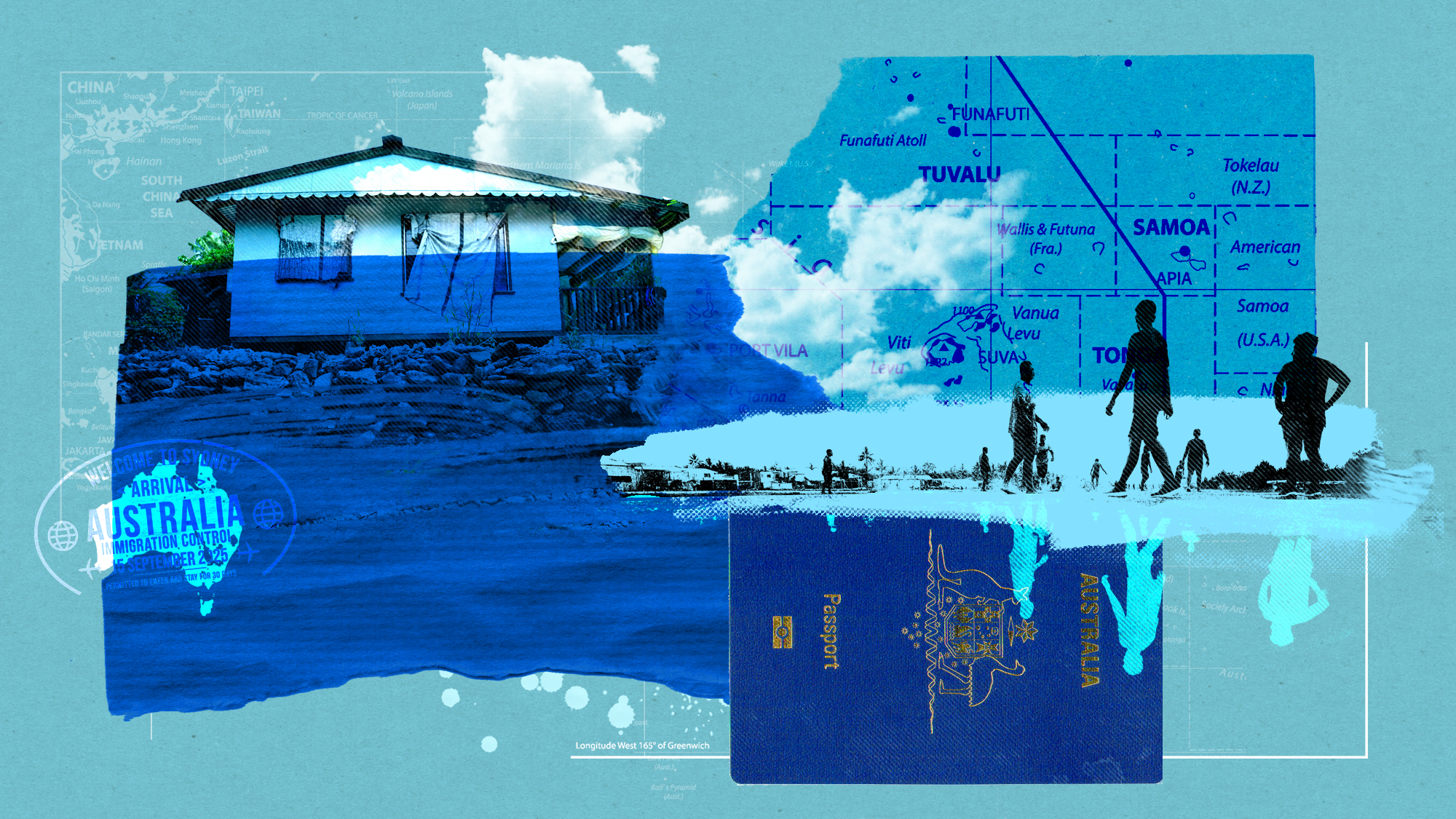The small island nation of Tuvalu stands as a stark testament to the escalating threat of climate change, poised to become the first sovereign state entirely lost to rising sea levels. This impending disappearance serves as a chilling harbinger for numerous other low-lying regions and island communities across the globe, underscoring the urgent need for comprehensive global climate action.
Situated in Oceania, Tuvalu, with its population of merely 11,000, faces an existential crisis, with projections indicating it could be submerged entirely by 2050. This dire forecast necessitates an unprecedented response, as the nation prepares to set a unique precedent: the permanent, organized evacuation of an entire country due to environmental degradation.
In a groundbreaking move to address this impending crisis, Tuvalu signed the Falepili Union Treaty with Australia. This agreement establishes a pioneering “climate visa,” a migration scheme allowing a specific number of Tuvaluans each year to settle as permanent residents in Australia, granting them extensive rights akin to Australian citizens, including access to health, education, housing, and employment.
While Tuvalu represents an entire nation’s potential loss, instances of climate-induced displacement are already unfolding on smaller scales. In 2024, approximately 1,200 members of the Indigenous Guna community were compelled to relocate from Gardi Sugdub island off Panama’s coast to the mainland, their ancestral home slowly succumbing to the encroaching sea.
Another poignant example of forced relocation due to environmental shifts is the displacement of nearly 300 people from an Alaskan village. This move was necessitated by the dangerous thawing of permafrost, which severely eroded the riverbanks supporting their community, highlighting the diverse ways climate change impacts human settlements beyond sea level rise.
Projections for the coming decades paint an even grimmer picture, with some estimates suggesting that by 2070, over three billion people could find themselves living outside of humanity’s traditional “climate niche,” areas historically conducive to human habitation. Island nations, owing to their topography and proximity to the ocean, are particularly vulnerable to these profound shifts.
The Maldives, an archipelago of almost 1,200 islands with the majority lying less than four feet above sea level, exemplify this extreme vulnerability. Even minimal increases in water levels can trigger severe consequences such as accelerated coastal erosion, salinization of crucial drinking water sources, and an increased frequency of devastating floods.
Consequently, the Maldivian government has proactively explored various strategies, including plans to acquire higher ground in other countries, to safeguard its population’s future. Numerous other island nations, including Kiribati, the Solomon Islands, Fiji, and Vanuatu, confront strikingly similar risks, underscoring a shared predicament among these fragile insular states.
The impending loss of Tuvalu and the widespread vulnerability of other low-lying regions serve as a critical call to action, demanding immediate and sustained global efforts to mitigate climate change and adapt to its unavoidable consequences, ensuring the survival and well-being of countless communities facing similar threats.






Leave a Reply